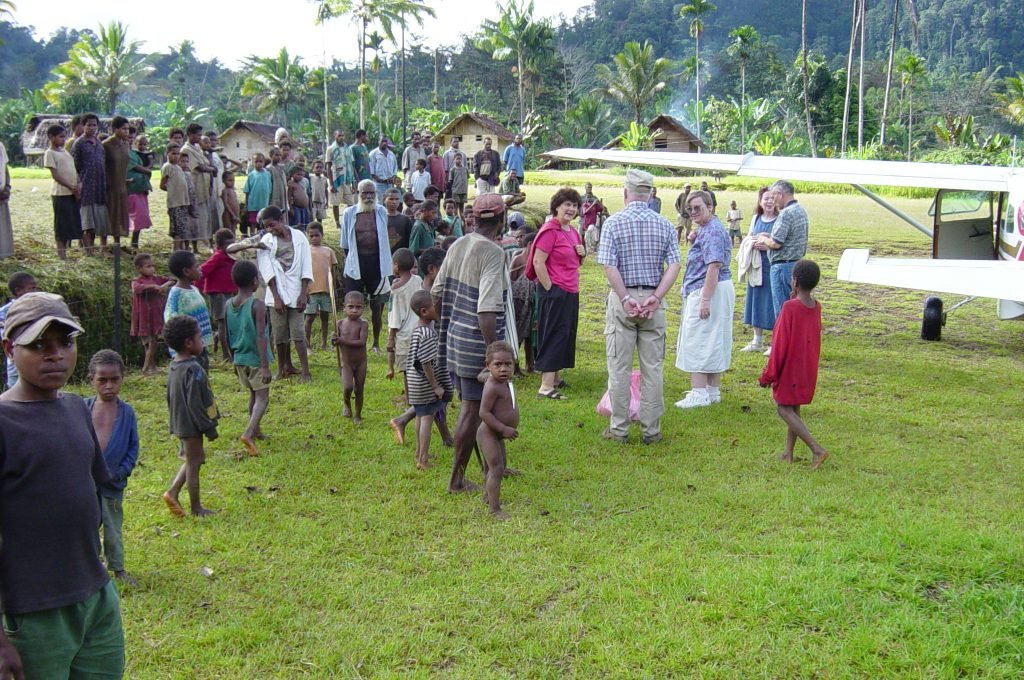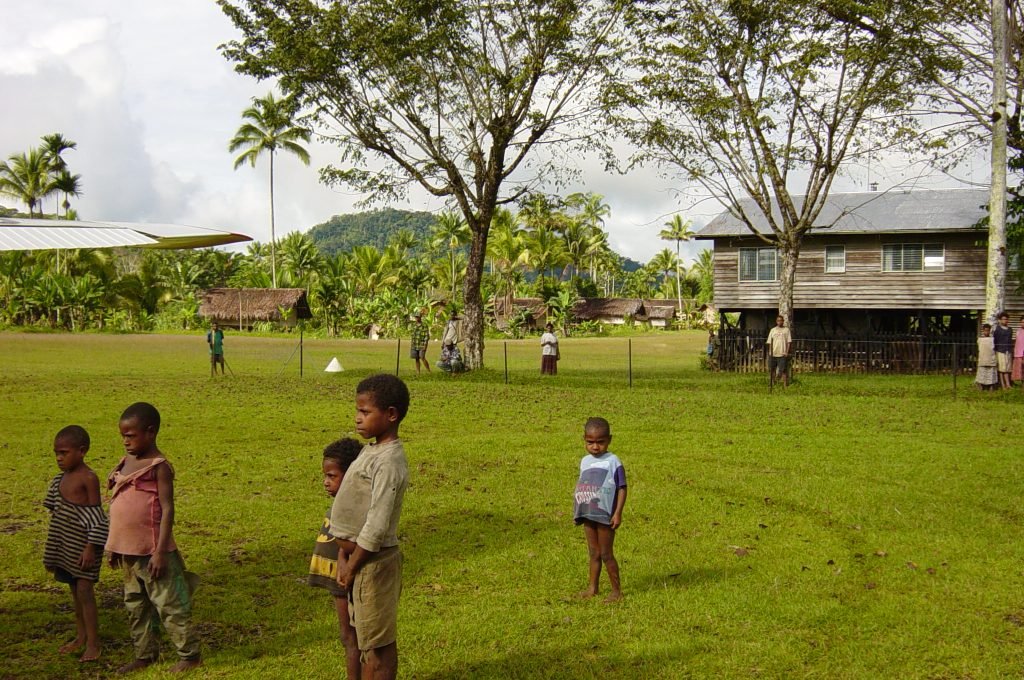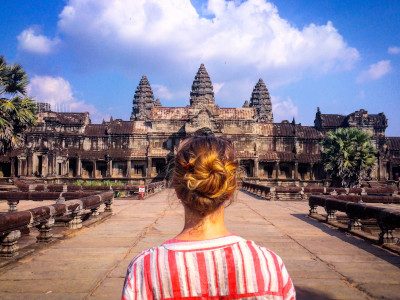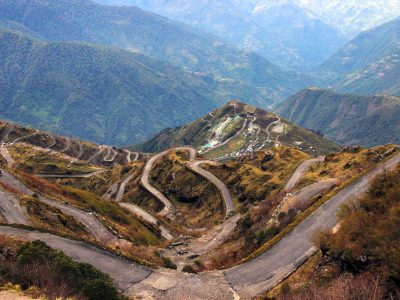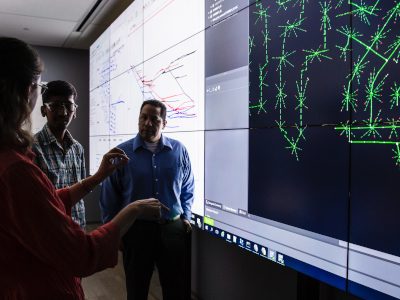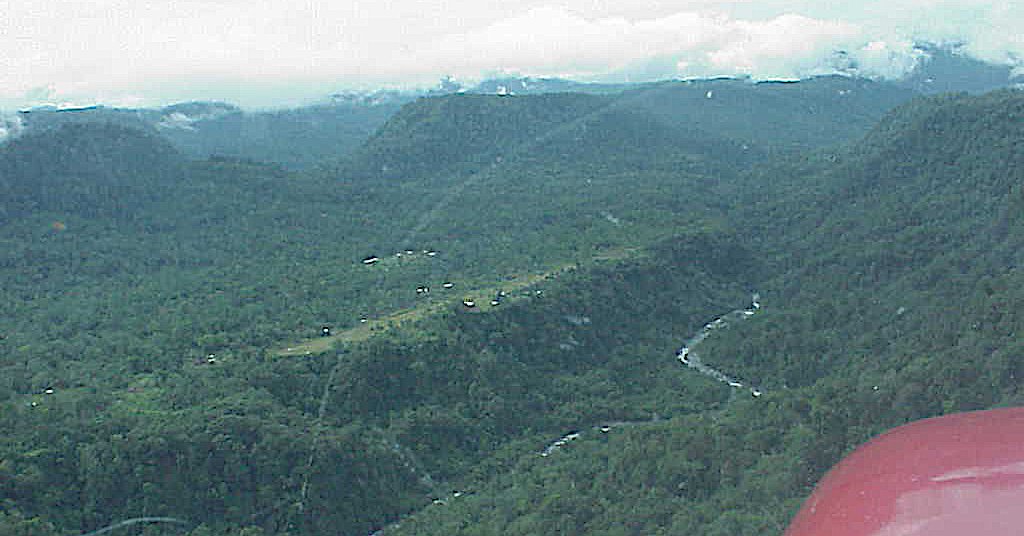
Jeniae
Completing the Great Commission
Foundational to living good on earth is preparing well for life hereafter.
I flew about half an hour climbing to ten thousand feet to pass through the gaps between mountain peaks which rose to about 14,000 feet above sea level. On the other side of the gaps, I circled, descending into a bowl where a short airstrip had been constructed in the village of Haia among the people of the Pawaia language.
Missionaries Jack and Isa Douglas were from England and they lived there. They needed food and supplies.
The Pawaia people were violent quite back when Jack and Isa first moved there, often settling their grievances with one another using axes and machetes. No one had ever told them about the wonderful grace of Jesus in their own language. The Bible did not yet exist in their unwritten language.
Jack and Isa had moved there to translate the Bible and teach the people of Pawaia, in their own language, everything that Jesus commanded us.
No airstrip had been carved out of the jungle when Jack and Isa first moved to Haia to learn the Pawaian language.
In those days, missionaries used a little Hiller helicopter which had a small load capacity. The plan was for Isa and their two babies to go to Haia on the first flight. Jack was going to join them with the food supplies on the second helicopter flight about two hours later. The weather changes quickly in the valley around the village of Haia, and that day the weather closed in after the first flight. It was three weeks before the weather cleared enough for Jack to join Isa and the two babies in the jungle with the Pawaia people.
What would you do if something like that happened to you?
I suppose you would do what Jack and Isa did; trust God.
That was one of the stories Jack and Isa told me when I visited them in Haia.
This other story I want to tell you is about a young man named Jeniae.
On this particular day that I began telling you about, I flew over the airstrip while descending to traffic pattern altitude and studied the airstrip. I was checking the wind strength and direction, looking for holes in the runway, and making sure that the dogs, pigs, chickens, and people had been chase off of the landing area of the runway.
I turned downwind between two hilltops, dodged a cloud or two on base leg and turned final to land on the short grassy airstrip. As soon as the wheels touched the groin, mud and water splashed up onto the clean wings, fuselage, and empennage of the aircraft. The aircraft was fully loaded so we skidded to a stop on the slippery wet grass more than halfway down the runway. I turned the aircraft around and taxied back to the parking bay.
Jack’s house was built on stilts right beside the parking bay, overlooking the airstrip. The stilts provided a barrier to things that move in the night and space for a workshop under the house, protected from the tropical rains.
The parking bay was small and the people crowded around the perimeter. As soon as the propeller stopped spinning, several people crowded around the aircraft to greet me and help unload the aircraft. I unloaded the supplies while listening to Jack and answering his questions, then helped carry the boxes of supplies to the door on the other side of the house.
Jack invited me up the stairs inside the house for coffee or tea. Being a good Englishman, he usually had tea nearby, but the best arabica coffee grew in the mountains nearby, and, right next to his house, Jack had built an electric coffee dryer for the village people to dry their coffee. The electricity was provided by a hydro-electric generator that Jack had also designed and built. He had shown those to me on a previous visit.
We carried boxes of groceries and supplies up the stairs and into the house. That is where I met Jeniae.
I first met Jeniae of the Pawaia Tribe in Papua New Guinea in 1995. At about 30 years of age he was such a bubbly happy character! I remember him well because he was so full of joy that he kept hugging Jack and slapping him on the front and back of his chest. Jack Douglas was the man who had brought the message of forgiveness and salvation through Jesus to Jeniae’s people.
Jeniae was from the village of Wejana in the Pawaia tribe of Papua New Guinea.
Some people would think that Jeniae didn’t have much to be bubbly about as Jeniae was almost blind. He had no vision in one eye and had great difficulty seeing anything with the other eye.
Before Jeniae was born his father had told his mother that if their child was a boy he did not want him and so she should get rid of him. At the time of delivery Jeniae’s mother went out into the jungle alone, as was the custom, and waited for the delivery. Upon delivery, having determined that he was a boy, she dug a hole, laid leaves in it and buried Jeniae in a shallow grave. She would not be allowed in the village for several weeks following the birth. This was because the men of the Pawaia tribe were very much afraid of the blood of women and of newborn babies. They had been taught since birth that if a man should come into contact with a woman’s blood or even look at a new-born baby that he would become sick and die.
Word got back to the rest of the group that she had given birth to a boy. Jeniae’s uncle did not have any male children. He wanted a boy of his own. When he found out that Jeniae had been born He asked if he could have the child. He was told that he could if he wanted to; it didn’t matter to the father. Word was sent to the mother that the uncle wanted Jeniae. She went and dug him up and took him to the stream to wash him off. By this time insects were crawling into his ears, nose, mouth and eyes so his eyes were scarred at birth.
Jeniae had a rough childhood. The other children teased him, mildly tortured him and played tricks on him. They often made him the object of their jokes because he could not see to defend himself. He couldn’t play games with the others or run and play with them. He was often rejected and abused. His life was miserable!
One day missionaries Jack and Isa Douglas moved into his area to learn his language and culture so that they could tell his people about God. After some years, they were finally able to tell his people about the God who created everything. They told the Pawaian people about God’s written message to man, the Bible, about God creating man and putting him in a special garden, and about sin. Jack and Isa told them about the promised Deliverer, Jesus, who came to earth to pay the sin debt for every person.
Jeniae listened to these stories about God. He could hardly believe these things were true! The story about Jesus dying on the cross for HIS sin was almost too good to be true! Surely it was for everyone else except him! But it sounded like the message was for him, too, so he went to Jack Douglas privately to confirm that this message of forgiveness from God was true and that it was for him too. He asked if he could go to heaven if he believed. If he went to heaven, would he get a new body? Would he get new eyes? Jack reassured him that the message was for him too. Jeniae was so overjoyed that he could hardly contain himself. He was excited! He especially liked the fact that someday he would have a NEW body and NEW eyes! It was years later that the reason for his careful questioning was discovered. He had heard in the teaching how a sacrificial lamb had to be perfect. Only a perfect animal was acceptable to God. One of the imperfections that would make the lamb unsuitable was blindness, hence Jeniae’s concern!
When I met Jeniae in 1995, he had just returned from a trip to a village three days hike to the south of his home village. This village was one to which the missionaries had never been with the gospel. He went there to tell them the Good News about God, sin, judgment, forgiveness and resurrection life through Jesus Christ. That might not sound like much of a big deal to you and me who can see. Remember that Jeniae could not see well!
He told me about one time when he was traveling alone through the jungle and he could not find the trail. What would you do if you were alone in the jungle, had lost the trail, and could not see? Jeniae prayed and asked God to help him find the trail! And God did just that! He found his way back to the trail and continued on his journey. As a result of Jeniae’s initiative people in several villages heard about eternal life through faith in Christ.
This is a very good example of just what we are working toward in Papua New Guinea. Our objective is to lead others to Christ and then equip them for ministry so that they can tell others about Him!
Jeniae continued to be a bubbling witness, testifying of God’s love and mercy to his people. It was while he was on yet another trip to share the gospel that he became very sick. He was many miles away from any medical help and his friends were trying to carry him back to where he could get medicine. However, he knew he was going to die so he told his friends to prepare him for burial. They were not to grieve for him. He was going to the good place! And so it was that Jeniae died and was buried in the middle of a village far from home. He doesn’t have a head stone to mark his grave. His obituary is written in the hearts of those to whom he brought the message of salvation. Now Jeniae has a new body and new eyes! He died in 1998.
by Randy Smyth, as edited by Jack & Isa Douglas
